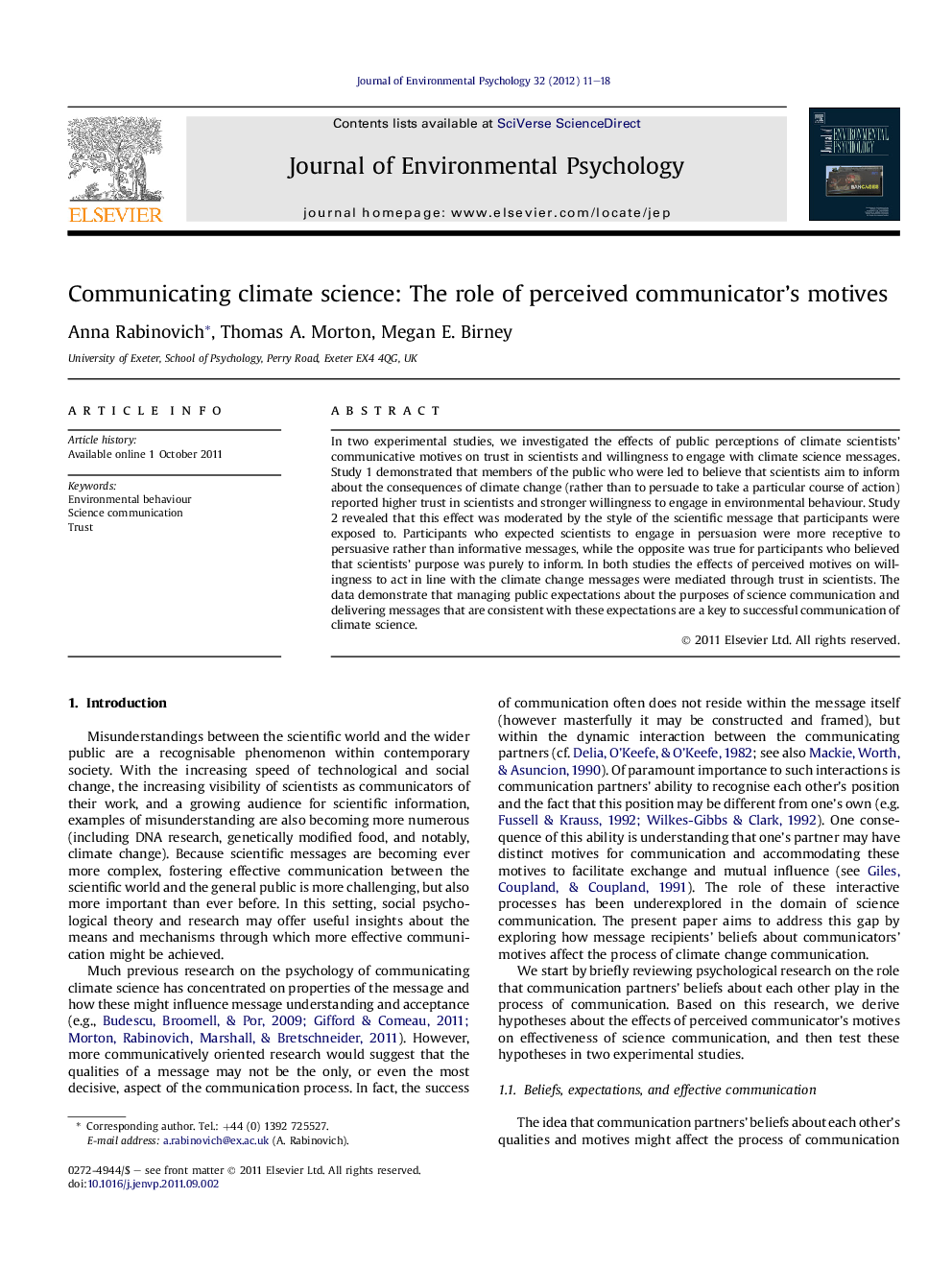| Article ID | Journal | Published Year | Pages | File Type |
|---|---|---|---|---|
| 885675 | Journal of Environmental Psychology | 2012 | 8 Pages |
In two experimental studies, we investigated the effects of public perceptions of climate scientists’ communicative motives on trust in scientists and willingness to engage with climate science messages. Study 1 demonstrated that members of the public who were led to believe that scientists aim to inform about the consequences of climate change (rather than to persuade to take a particular course of action) reported higher trust in scientists and stronger willingness to engage in environmental behaviour. Study 2 revealed that this effect was moderated by the style of the scientific message that participants were exposed to. Participants who expected scientists to engage in persuasion were more receptive to persuasive rather than informative messages, while the opposite was true for participants who believed that scientists’ purpose was purely to inform. In both studies the effects of perceived motives on willingness to act in line with the climate change messages were mediated through trust in scientists. The data demonstrate that managing public expectations about the purposes of science communication and delivering messages that are consistent with these expectations are a key to successful communication of climate science.
► We experimentally manipulate perceived communicator motives and message type in climate science context. ► We investigate the effects on willingness to act in line with the message (environmental behaviour). ► Fit between communicator motives and message type results in audience trust and message acceptance. ► Managing public expectations about communication purposes is a key to successful communication of climate science.
